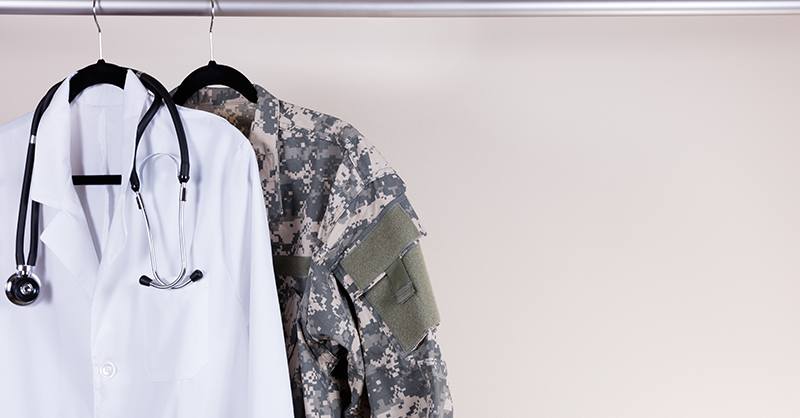You may have considered the military as a way to help pay for medical school, but chances are that you’ll discover it’s much more than just a financial option once you join the Army medical team. We recently connected with U.S. Army Col. Michael D. Henry of the Medical Corps to learn about his educational background and his career as a Command Surgeon in the Special Operations community. Here is a snapshot of his story, in his own words.

From Boy Scout to U.S. Army Colonel
I enjoyed medicine and helping people since Boy Scouts – I really loved first aid. The desire to go to medical school was strengthened when I was in the Army and was called to a motor vehicle accident in Thailand and was frustrated that I could not do more for the victims. I then attended Marquette University and studied Finance on an ROTC scholarship.
I left active duty, went into business and took some prerequisites to apply for medical school. I was in the Army Health Professions Scholarship Program while in medical school at Howard University College of Medicine.
Choosing a Specialty That Serves the Whole Family
I chose Family Medicine because you can take care of the entire Army family. I really enjoy delivering babies and caring for pediatric patients and geriatrics. I have spent most of my career in operational medicine, which is a great field to practice medicine. I really like caring for the soldiers and their families where they work and where they live.
My job is to take care of the soldiers and families — their jobs are hard enough without having to worry about their health. I would advise anyone considering this field that every Commander and service member expects you to be the best in your field. So you need to be a great leader as well.
Professional Advice
As a member of the American Academy of Family Practice, I read that journal regularly to stay up to date on happenings in the health care field. I also stay up to date through the Wilderness Medicine Association. As far as keeping up with my continuing medical education, I utilize online courses and attend conferences.
The advice that I give those considering this field: You need to balance work with your family life – you are not the only doctor in the Army. Always remember that if you are on empty, you can’t provide for anyone else.
